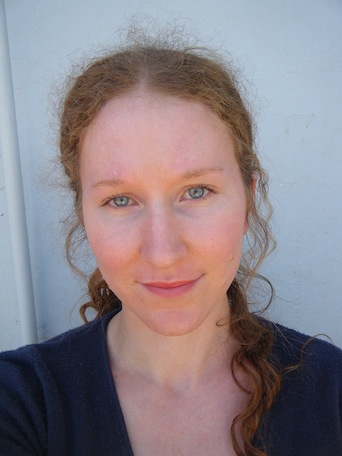Translator Corner: Meet Amandine our French Translator
Amandine was born in Calais, a seaside town in northern France. She recently moved to Colorado to settle down there with her American husband. She went to school in Northern France, where she did her whole university training at the University of Boulogne-sur-Mer, where she obtained a Master’s degree with specialization in humanities and social sciences, English language, literature and civilization, and in translation. She also has experience as a teacher of French as a foreign language, which proves very useful for the translation of education-related materials.
- What are the language(s) do you work with?
I specialize in translation from English into French, and I also translate from Spanish into French.
- How long have you worked as a translator?
I have been working as a freelance translator for 4 years, but my translation experience goes back further, with participation in voluntary translation projects.
- How many languages do you know? Please name them.
I know 3 languages: French, English and Spanish.
- Where have you worked as a translator?
I have worked as a freelance translator in France.
- How long have you been a freelancer?
I have been a freelancer for 4 years.
- What are some of the unique complexities in translating from English to your language? Between other languages?
English is more synthetic and straightforward than French: a situation which can be described with one word in English will generally require the use of many complements in French.
- What is your specialty area?
I specialize in humanities and social sciences, education, literature, tourism and travel, and advertising.
- What is your favorite type of translation project and why?
I particularly enjoy translation projects which are challenging in terms of writing skills: I love taking the time to choose the right words and construct precise and flawless sentences.
- What specific problems do you face regularly in translation?
Finding the right vocabulary and terminology can be very time-consuming and often requires extensive research.
- How has Alpha Omega Translations helped you do your job?
Alpha Omega Translations is a quality-oriented company, always supportive and helpful, providing the translator with extensive documentation on each specific area to ensure the accuracy of the vocabulary and terminology used in the translation.
- What issues you would like to see resolved in your work or relation with AOT?
None
- What benefits have you seen as a result of your work?
I have expanded my experience and knowledge of a variety of fields.
- Who are most of your clients that need help with translation?
I work for clients with very diverse backgrounds: tourist offices, travel operators, e-learning schools, consumer goods companies…etc.
- What are the issues or problems that you are asked most frequently to help solve?
Questions of vocabulary and terminology.
- What do think would help to improve translation in general?
- How do you view your role as a messenger of knowledge between different cultures?
I consider it to be an important role for various reasons, particularly in our current globalized environment: it enables the exchange of ideas between cultures that otherwise wouldn’t be able to relate, it enables communication between different regions of the planet and helps to create proximity and the feeling of being world citizens. It is also important for humanitarian organizations which need their cause to be as widespread as possible, for governments to work together, for companies to reach new markets, and to spread artistic and literary masterpieces.
How many languages and local dialects are spoken in your area? Please name them.
In the region where I come from, people speak French and a local dialect specific to northern France: the Picard, also called Chtimi or Chti. This dialect is spoken in the French regions of Nord-Pas-de-Calais and Picardie, as well as in some parts of Belgium. This colorful dialect is full of imagery, but unfortunately its usage has decreased and is now mostly spoken by older generations.
For an overview of our translation expertise, visit our technical translation service page.

Category: Alpha Omega News








